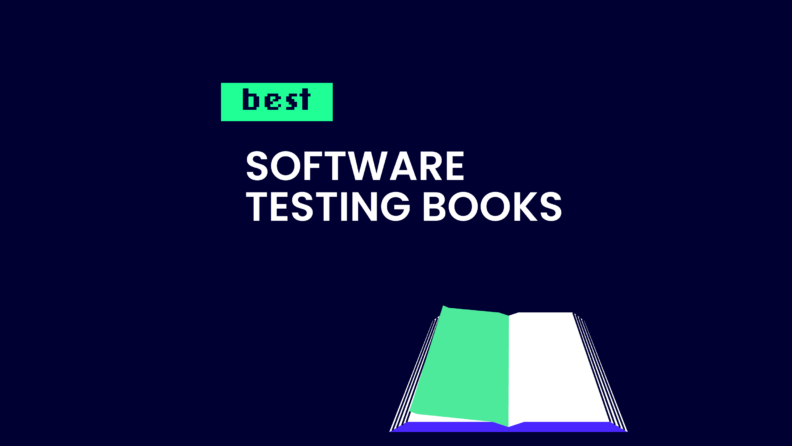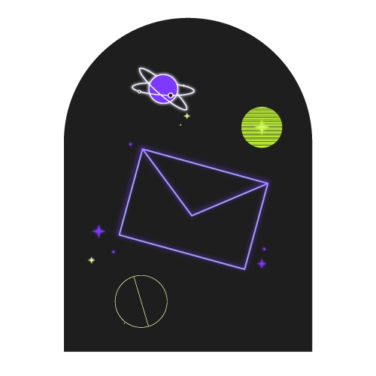Software testing can be quite complex, from unit and integration testing to exploratory and security testing. But as a software engineer entrenched in DevOps, I've devoured countless books on this subject. I've experimented with various testing tools and optimized test planning for Android and other mobile apps. I've also gotten hands-on with test-driven development and learned a lot about how to test software effectively, whether for APIs or various development stages.
Test management, testing environments, types of testing—it's all on my radar. My passion for software testing is rivaled only by my dedication to helping fellow software testing experts and test engineers elevate their skills. Are you curious about the latest in test-driven development? You're in good company. Let's explore and master the key aspects of software testing together.
17 Best Software Testing Books Shortlist
I've handpicked these software testing books tailored to address your challenges.
- The Art of Software Testing by Glenford J. Myers, Corey Sandler, and Tom Badgett
- Continuous Delivery: Reliable Software Releases through Build, Test, and Deployment Automation by Jez Humble and David Farley
- Clean Code: A Handbook of Agile Software Craftsmanship by Robert C. Martin
- Agile Testing: A Practical Guide for Testers and Agile Teams by Lisa Crispin and Janet Gregory
- Software Testing: A Craftsman’s Approach by Paul C. Jorgensen
- Software Test Automation: Effective Use of Test Execution Tools by Mark Fewster and Dorothy Graham
- Foundations of Software Testing ISTQB Certification by Rex Black, Erik van Veenendaal, and Dorothy Graham
- Exploratory Software Testing: Tips, Tricks, Tours, and Techniques to Guide Test Design by James Whittaker
- Software Testing 2nd Edition by Ron Patton
- A Practitioner's Guide to Software Test Design by Lee Copeland
- Beautiful Testing: Leading Professionals Reveal How They Improve Software by Tim Riley and Adam Goucher
- Software Testing Techniques by Boris Beizer
- How Google Tests Software by James A. Whittaker, Jason Arbon, and Jeff Carollo
- Testing Computer Software by Cem Kaner, Jack Falk, and Hung Q. Nguyen
- Test Automation using Selenium WebDriver with Java: Step-by-Step Guide by Navneesh Garg
- Performance Testing Guidance For Web Applications: Patterns And Practices by Et Al. Meir
- Specification by Example: How Successful Teams Deliver the Right Software by Gojko Adzic
Overviews of the 17 Best Software Testing Books
Here’s a quick summary of each book, what you’ll learn, why you should read it, and a quote I like from the book. I added the author’s LinkedIn and other places to connect with them online.
1. The Art of Software Testing by Glenford J. Myers, Corey Sandler, and Tom Badgett
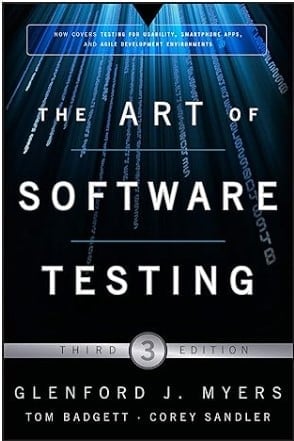
Summary:
This classic in the software testing field, now revised and extended, provides readers with the latest methodologies and practices in software testing, accentuated with real-world scenarios.
What You'll Learn:
Discover techniques to design robust software tests, methods to uncover elusive bugs, and ways to maintain software rigor. Gain an in-depth understanding of the role of the tester in software development.
Why You Should Read It:
If you want a foundational text on software testing that has stood the test of time, this is it. It serves as a manual for both beginners and seasoned professionals.
Quote From The Book:
"Testing is the process of executing a program with the intent of finding errors."
About The Authors:
Learn more about Corey Sandler on LinkedIn, or check his company website.
2. Continuous Delivery: Reliable Software Releases through Build, Test, and Deployment Automation by Jez Humble and David Farley
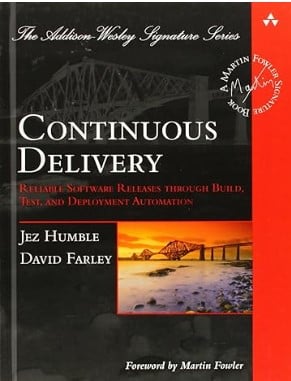
Summary:
This book dives deep into the practice of continuous delivery, ensuring that software can be reliably released at any time, accelerating the feedback loop, and facilitating adaptive development.
What You'll Learn:
Grasp the foundations of continuous delivery and its significance in modern software development, effective automation testing tools across build, deploy, test, and release processes, and the best practices for performance tuning and capacity planning.
Why You Should Read It:
To master the art and science of delivering frequent, reliable releases of your software, making your development process more agile and adaptive.
Quote From The Book:
"Low-risk releases are its outcome, not its goal."
About The Author:
Get insights from Jez Humble on his LinkedIn and his website. Read more from David Farley's LinkedIn, Twitter, and company website.
3. Clean Code: A Handbook of Agile Software Craftsmanship by Robert C. Martin
Summary:
In "Clean Code," Robert C. Martin, a pioneer in Agile methodology, elaborates on the principles and best practices for writing clean, maintainable code. Learn more from our best code review tools list.
What You'll Learn:
Learn the principles of Agile software crafting, best practices and techniques for writing clean code, and case studies that display the transformation of a bad code into a good one.
Why You Should Read It:
If you wish to elevate your coding skills and understand the essence of writing code that is efficient, readable, and maintainable, this book is essential.
Quote From The Book:
"Truth can only be found in one place: the code."
About The Author:
Engage with Robert C. Martin on LinkedIn, and delve into his insights on his website.
4. Agile Testing: A Practical Guide for Testers and Agile Teams by Lisa Crispin and Janet Gregory
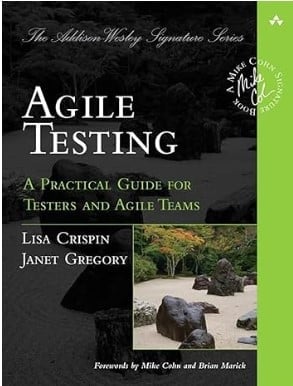
Summary:
Dive into Agile test management and understand the unique challenges and solutions when testing in an Agile environment.
What You'll Learn:
Get insights into how testing practices fit into Agile projects, discover the roles of the tester, and understand the challenges and benefits of Agile testing.
Why You Should Read It:
To effectively merge testing and Agile practices and ensure the delivery of high-quality software projects.
Quote From The Book:
"Agile values and principles are the foundation for a productive and satisfying quality-assured Agile project."
About The Author:
Engage with Lisa Crispin on her LinkedIn and learn more about Janet Gregory through her LinkedIn and company website.
5. Software Testing: A Craftsman’s Approach by Paul C. Jorgensen
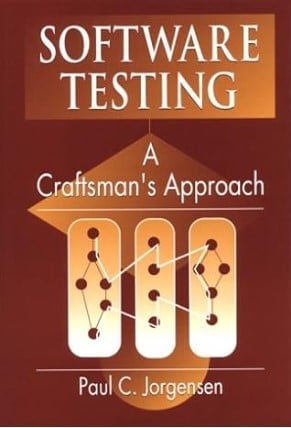
Summary:
This comprehensive guide explores the technicalities and nuances of software testing, providing readers with methodologies and techniques backed by real-world examples.
What You'll Learn:
Understand the foundations of software testing, delve deep into testing methods for traditional and object-oriented software, and explore case studies for hands-on understanding.
Why You Should Read It:
For a hands-on and holistic approach to software testing, offering practical techniques supported by concrete examples.
Quote From The Book:
"Testing is an exploration and investigation, a quest to find the depth and breadth of the software's capabilities and weaknesses."
About The Author:
Please stay connected with Paul C. Jorgensen on his LinkedIn.
6. Software Test Automation: Effective Use of Test Execution Tools by Mark Fewster and Dorothy Graham
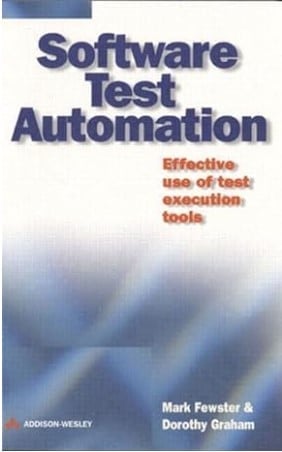
Summary:
Plunge into automated software testing with this guide, presenting practical advice, real-world examples, and an emphasis on getting automation right.
What You'll Learn:
Learn the principles of software test automation, recognize when and what to automate, and explore strategies to design automated tests effectively.
Why You Should Read It:
For a profound understanding of software test automation and to gain knowledge on leveraging automation tools to maximize your testing efforts.
Quote From The Book:
"Effective automation is not about eliminating testers but about amplifying their capabilities."
About The Author:
Connect with Mark Fewster on LinkedIn and dive deeper into Dorothy Graham's contributions on her Twitter and her blogspot.
7. Foundations of Software Testing ISTQB Certification by Rex Black, Erik van Veenendaal, and Dorothy Graham
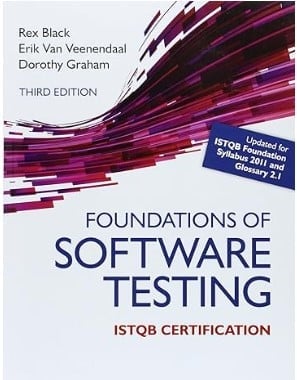
Summary:
This book provides essential insights into ISTQB and aims to make the readers proficient in software testing foundations to prepare them for the ISTQB certification.
What You'll Learn:
Delve into the foundation-level contents based on the ISTQB syllabus, gain a deep understanding of software testing principles, practices, and terminologies, and get equipped for the ISTQB-BCS Certified Tester Foundation exam.
Why You Should Read It:
This book is a must-have if you are gearing up for the ISTQB certification. It’s a comprehensive guide to understanding, learning, and mastering software testing foundations.
Quote From The Book:
"A good test case has a high probability of finding an undiscovered defect."
About The Author:
Engage with Rex Black on his LinkedIn, connect with Erik van Veenendaal through Twitter, and explore Dorothy Graham's insights on her blogspot.
8. Exploratory Software Testing: Tips, Tricks, Tours, and Techniques to Guide Test Design by James Whittaker
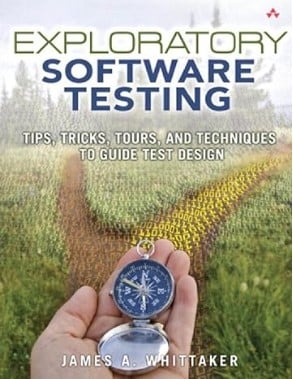
Summary:
James Whittaker puts forth an innovative approach to software testing. He introduces a systematic, tech-centric method for evolving, managing, and automating your testing efforts.
What You'll Learn:
Understand the exploratory approach to software testing, how to design and write tests, and the concept of tours for test execution.
Why You Should Read It:
To transform your perspective on software testing by embracing an exploratory approach and gaining techniques that will help you become a more strategic and influential tester.
Quote From The Book:
"Testing is more than just finding bugs. It's about understanding the software's capability and determining its adequacy."
About The Author:
Stay updated with James Whittaker through his LinkedIn, and his insights on Twitter, and get more on his website.
9. Software Testing 2nd Edition by Ron Patton
Summary:
Ron Patton's "Software Testing" serves as an excellent introduction and step-by-step guide to the world of software testing, covering both manual and automated testing.
What You'll Learn:
Get acquainted with the basics of software testing, delve into test case design techniques, and understand the challenges of modern software testing scenarios.
Why You Should Read It:
If you are venturing into the realm of software testing or even if you're a seasoned professional, this book offers timeless insights and timeless methodologies.
Quote From The Book:
"Testing is the infinite process of comparing the invisible to the ambiguous to prevent the unthinkable from happening to the anonymous."
About The Author:
Connect with Ron Patton on his LinkedIn and explore his works through other links.
10. A Practitioner's Guide to Software Test Design by Lee Copeland
Summary:
Lee Copeland's guide is a comprehensive walkthrough of test design, providing both foundational principles and advanced techniques to enhance software quality.
What You'll Learn:
Discover the most effective and efficient test case design techniques, encompassing white-box and black-box testing methodologies.
Why You Should Read It:
This book is the go-to guide for understanding the nuances of test design. Its hands-on approach ensures that you learn the theory and how to apply these techniques in real-world scenarios.
Quote From The Book:
"Good test design is the heart of effective testing. Without it, we merely have aimless activity."
About The Author:
Engage with Lee Copeland on his LinkedIn.
11. Beautiful Testing: Leading Professionals Reveal How They Improve Software by Tim Riley and Adam Goucher
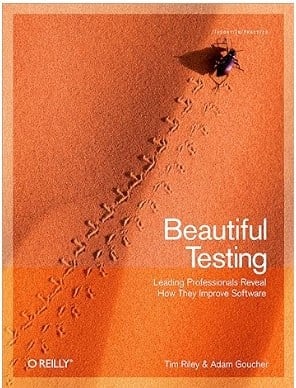
Summary:
The book offers diverse perspectives from leading professionals in the field, providing unique insights and showcasing the art and science behind improving software.
What You'll Learn:
Get a firsthand look into the minds of industry leaders as they share their experiences, techniques, and strategies for creating beautiful, effective tests.
Why You Should Read It:
If you want to elevate your testing practices and learn from the best in the field, this anthology is a treasure trove of wisdom.
Quote From The Book:
"Great testing is not just about preventing defects, but enhancing the beauty of software."
About The Authors:
Stay connected with Tim Riley on his LinkedIn and with Adam Goucher on his personal website.
12. Software Testing Techniques by Boris Beizer
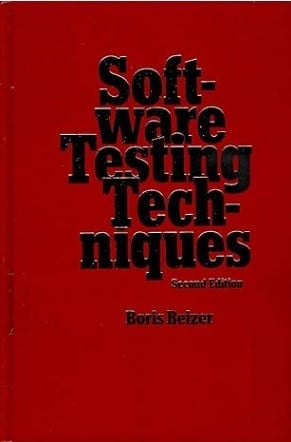
Summary:
Boris Beizer's classic stands the test of time, diving deep into software testing methodologies, offering both a theoretical foundation and practical tools for testers.
What You'll Learn:
Grasp the underlying principles of software testing, explore various techniques ranging from boundary value testing to state transition testing, and understand the broader context of the testing process.
Why You Should Read It:
For anyone serious about mastering the discipline of software testing, Beizer's guide is an indispensable resource, offering a blend of foundational knowledge and hands-on techniques.
Quote From The Book:
"Software testing is not just a task, but a disciplined approach to quality assurance."
About The Author:
Boris Beizer was an American software engineer and author. He was also a speaker at many testing conferences and was also known for his seminars on testing.
13. How Google Tests Software by James A. Whittaker, Jason Arbon, and Jeff Carollo
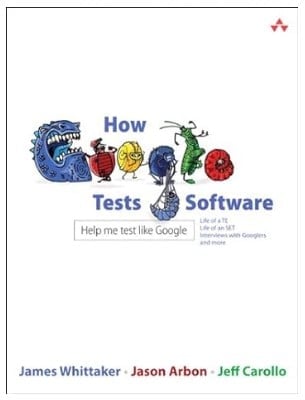
Summary:
Dive into the world of Google, understanding its unique and pioneering approach to software testing. This software testing book offers an insider's view into the strategies and tools used by one of the world's most influential tech giants.
What You'll Learn:
Uncover the methodologies and techniques Google employs to ensure high-quality software, from automation to manual testing, and the company's approach to hiring quality engineers.
Why You Should Read It:
Not every day you get a peek into Google's software testing kitchen. This book provides invaluable insights for anyone keen on understanding or implementing large-scale, effective testing strategies.
Quote From The Book:
"High-quality software isn't tested; it's built."
About The Authors:
Connect with James A. Whittaker on his LinkedIn, find Jason Arbon on his Twitter, and explore Jeff Carollo's insights on his LinkedIn.
14. Testing Computer Software by Cem Kaner, Jack Falk, and Hung Q. Nguyen
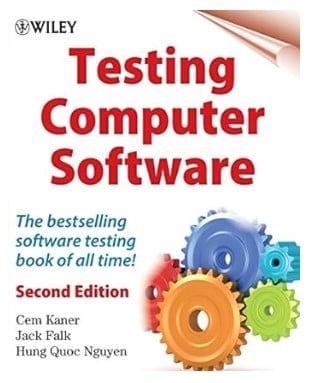
Summary:
This comprehensive guide has long been considered the bible for software testers. The book delves into practical methods and strategies to uncover software defects.
What You'll Learn:
Acquaint yourself with fundamental principles of software testing, effective test techniques, and the nuances of real-world applications to ensure quality deliverables.
Why You Should Read It:
This is a seminal read for those aiming to grasp the art and science of software testing, providing both foundational knowledge and actionable techniques.
Quote From The Book:
"The best tester isn't the one who finds the most bugs or who embarrasses the most programmers. The best tester is the one who gets the most bugs fixed."
About The Author:
Explore more about Cem Kaner's works on his Amazon portfolio.
15. Test Automation using Selenium WebDriver with Java: Step-by-Step Guide by Navneesh Garg
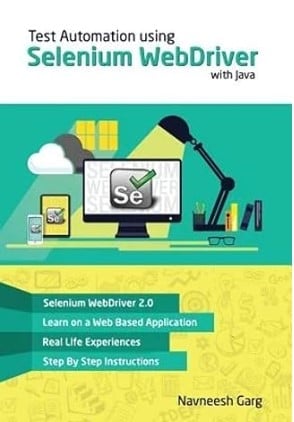
Summary:
Navneesh Garg introduces readers to Selenium WebDriver, a popular tool for web application testing, by integrating it with the Java platform.
What You'll Learn:
Master the basics of Selenium WebDriver, its integration with Java, and how to effectively automate web application testing processes for more efficient outcomes.
Why You Should Read It:
In an age where automation is crucial, understanding web application testing tools like Selenium WebDriver is paramount. This guide, coupled with Java expertise, ensures you're ahead in the automation game.
Quote From The Book:
"Automation is good, but it's not the panacea for testing. It complements manual testing and fills the gaps."
About The Author:
Connect with Navneesh Garg on his LinkedIn.
16. Effective Software Test Automation: Developing an Automated Software Testing Tool by Kanglin Li
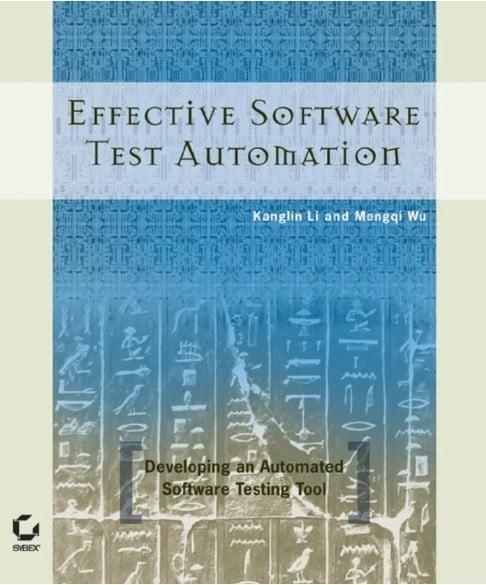
Summary:
"Effective Software Test Automation: Developing an Automated Software Testing Tool" is a comprehensive guide that takes you through the intricacies of adapting automated software testing tools to your projects' specific needs. Kanglin Li provides insight into creating a tailor-made tool that will improve the efficiency and effectiveness of your software testing process.
What You'll Learn:
Discover the essentials of designing your automated software testing tool, understand the key considerations that influence its functionality, and learn the steps involved in developing a tool that integrates seamlessly with your software testing environment.
Why You Should Read It:
This book is crucial for professionals who want to elevate their testing processes, offering detailed guidance on creating an automated tool. It's especially beneficial for those who face unique testing challenges that off-the-shelf solutions cannot resolve.
Quote From The Book:
"To achieve effective test automation, a customized approach that directly caters to your software's specific testing needs is imperative."
About The Author:
Kanglin Li is a force in the software testing field known for his innovative approach to test automation. You can engage further with Kanglin's insights on LinkedIn.
17. Specification by Example: How Successful Teams Deliver the Right Software by Gojko Adzic
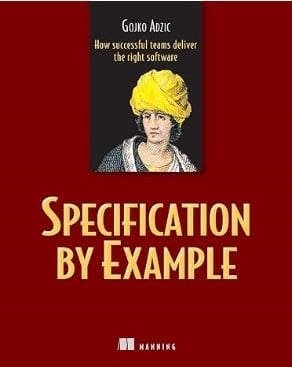
Summary:
In "Specification by Example," Gojko Adzic unveils a method that bridges the communication gap between stakeholders and development teams, ensuring the delivery of the right software.
What You'll Learn:
Understand the Specification by Example approach and how it can transform the development process. Learn to create living documentation that ensures all stakeholders are on the same page.
Why You Should Read It:
Effective communication is at the heart of successful software development. This book introduces a proven approach to ensure that teams are aligned, reducing waste and delivering the right product.
Quote From The Book:
"Successful delivery is not just about ticking off features; it's about collaboration, understanding, and delivering value."
About The Author:
Engage with Gojko Adzic on his LinkedIn, and stay updated through his Twitter.
Which Software Testing Books Do You Recommend?
If there's a software testing book you believe should be on this list, I'd love to hear your recommendation. Every reader's perspective enriches our collective understanding, so please share your favorites and insights. Together, we can continue building a comprehensive resource for all software testing enthusiasts.
Looking to boost your security skills? Here are some excellent penetration testing books.

